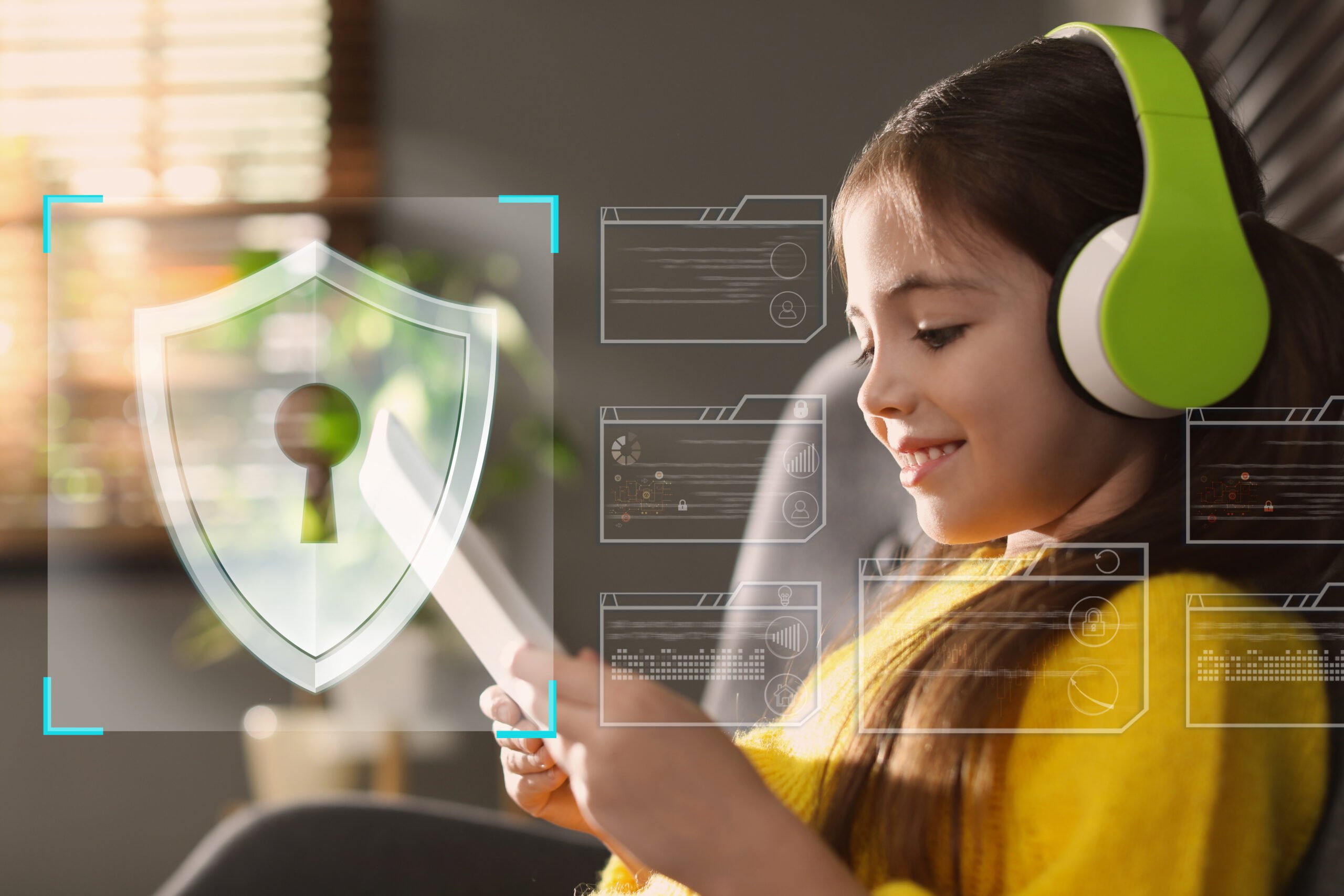
The internet can be a very dangerous place for— well, anyone actually. But the risks are particularly pronounced for the most vulnerable members of the population—specifically, children. There is the usual risk of cybercrime. There is also the frightening potential for exposure to strangers, or other harmful content.
Parents need to take an active role in keeping their children safe online. But in a world where there is a tablet in the hands of almost every public school student in the country, this can be easier said than done.
In this article, we take a look at essential online safety tips that will help you guide your children to sensible choices.
Understanding the Risks
So, what exactly are the most prominent threats to children online? While there is certainly an intersection of concerns between adolescent online risks and the issues that adult users face, there are some concerns that are uniquely prevalent among children. For example:
- Exposure to inappropriate content: Most parents are well aware of the fact that anything imaginable is just a click or two away online. It’s very easy for children to stumble across problematic content, either on purpose or accidentally. Many seemingly benign channels— for example, YouTube are notorious for making inappropriate content very accessible.
- Interactions with strangers: It’s also very easy to communicate with people from all over the world online. This makes digital forums a common place for predators to seek inappropriate interactions with unsuspecting children.
- Addiction: At this point, you might think we are laying it on a little thick—and not just because we used the phrase “unsuspecting children.” But it’s true. Addiction to digital technology is real and it causes considerable hardship in the lives of people who suffer from it. Digital technology addiction can result in significant anxiety, depression, and insomnia.
- Cyberbullying: The digital world also ensures that children have constant access to one another. Bullying used to happen almost exclusively face-to-face. Now that children can connect to all of their peers in a matter of seconds it reduces the number of “safe spaces,” considerably. This can create considerable psychiatric trauma in kids who feel they can’t escape abuse even at home.
Some of these concerns can be addressed through careful monitoring and parental controls. We will talk about those steps a little bit later. However, our final consideration—the issue of cyberbullying—bears further contemplation.
How to Recognize the Signs of Cyber Bullying
The symptoms of cyberbullying can manifest itself in several ways. In certain cases, the child may withdraw entirely from online activity. In other cases, they may check their devices constantly to see what people are saying about them.
In many cases, the psychiatric trauma can be considerable. People who suffer from cyberbullying are more than twice as likely to experience thoughts of suicide. They also encounter much higher levels of stress and anxiety than the general population.
If you suspect that your child is experiencing online abuse, it is important to investigate the situation further.
Speak with them directly. If you can’t get anywhere through conversation, contact the school. Often, teachers will have a better understanding of what happens in children’s lives than parents do.
Parental Controls
One of the easiest ways to help improve your children’s online safety is to establish parental controls on their smart devices. While these settings will not neutralize all threats, they will allow you to easily block a significant amount of harmful content.
It will also allow you to see what they are doing online, and even limit the time they spend in digital spaces.
Teach Safety
One of the core reasons that kids encounter significant risk online is because they simply don’t understand what the dangers are. Sit down with your child and explain what the dangers of irresponsible online activity are.
Chances are, they will not understand the risks of online strangers or unsafe websites until the stakes are clearly outlined for them.
Establish and Enforce Clear Expectations
Make sure that your children understand fully and completely how you expect them to behave online. Layout consequences for any and all violations, and make sure that those consequences are implemented when appropriate.
Online activity is harder to regulate than other forms of child behavior so it is much more important to establish a system for enforcing your rules right from the get-go.
Train for Safety
Not all risks are strictly a consequence of bad decision-making. Sometimes, online activity becomes dangerous due to a general lack of awareness. Regularly teach your children how to stay safe from cybercrime.
Let them know what risks are out there, and help them understand what behaviors will limit exposure to those risks. This can include everything from keeping passwords private to understanding what precautions to take when opening emails or visiting a website.
Keep it quick, fun, and memorable. You don’t want to stress your child out. You just want to make sure they know how to stay safe in a complicated and ever-evolving space.
Conclusion
None of these tips will work without effective collaboration and open communication. Your kids do need to play an active role in their own safety. Parental controls can be worked around. Good advice can be ignored. And sometimes, a person will do everything right and still wind up in a bad situation online.
As a parent, your job is to check in regularly with your kids. Maintain a productive channel of communication. Make sure they are comfortable coming to you with all of their problems— cyber or otherwise.
This is often easier said than done. Make sure your child understands that you are a safe place to take even troubling information. Stories they find embarrassing. Confessions that they worry might get them into trouble.
Your job is to guide and govern, but the older your child gets, the more of a partner you become. The more comfortable they are bringing their online problems to you, the more active a role you can play in keeping them safe.
- SEO Powered Content & PR Distribution. Get Amplified Today.
- PlatoData.Network Vertical Generative Ai. Empower Yourself. Access Here.
- PlatoAiStream. Web3 Intelligence. Knowledge Amplified. Access Here.
- PlatoESG. Carbon, CleanTech, Energy, Environment, Solar, Waste Management. Access Here.
- PlatoHealth. Biotech and Clinical Trials Intelligence. Access Here.
- Source: https://www.smartdatacollective.com/essential-online-safety-guidelines-for-kids-internet-use/
- :is
- :not
- :where
- $UP
- a
- About
- abuse
- access
- accessible
- across
- active
- activity
- actually
- addiction
- addressed
- Adult
- advice
- All
- allow
- almost
- also
- among
- amount
- an
- and
- Another
- Anxiety
- any
- anyone
- anything
- anywhere
- appropriate
- ARE
- around
- article
- AS
- At
- aware
- awareness
- away
- Bad
- BE
- because
- become
- becomes
- behavior
- Better
- between
- Bit
- Block
- Bringing
- bullying
- but
- CAN
- careful
- cases
- causes
- certain
- certainly
- Channel
- check
- child
- Children
- choices
- clear
- clearly
- click
- collaboration
- comfortable
- coming
- Common
- communicate
- Communication
- completely
- complicated
- Concerns
- conclusion
- Connect
- consequence
- Consequences
- considerable
- constant
- constantly
- contact
- content
- controls
- Conversation
- Core
- country
- create
- cyber
- Cyberbullying
- cybercrime
- Dangerous
- dangers
- Decision Making
- depression
- Devices
- digital
- digital technology
- digital world
- directly
- do
- doing
- done
- Dont
- down
- due
- easier
- easiest
- easily
- easy
- Effective
- either
- emails
- encounter
- enforce
- enforcing
- ensures
- entirely
- escape
- essential
- establish
- Even
- Every
- everything
- exactly
- example
- exclusively
- expect
- experience
- experiencing
- Explain
- Exposure
- external
- Face
- fact
- feel
- final
- Find
- For
- forms
- forums
- from
- fully
- fun
- further
- General
- get
- good
- guide
- guidelines
- Hands
- happen
- happens
- harder
- hardship
- harmful
- Have
- help
- higher
- Home
- How
- How To
- However
- HTTPS
- if
- implemented
- important
- improve
- in
- In other
- include
- information
- interactions
- Internet
- intersection
- into
- investigate
- issue
- issues
- IT
- itself
- Job
- jpg
- just
- keeping
- kids
- Know
- Lack
- later
- laying
- Layout
- levels
- likely
- LIMIT
- little
- Lives
- Look
- maintain
- make
- MAKES
- Making
- many
- Matter
- May..
- Members
- memorable
- might
- monitoring
- more
- most
- much
- Need
- notorious
- now
- number
- of
- often
- older
- on
- ONE
- online
- online abuse
- open
- opening
- or
- Other
- otherwise
- our
- out
- outlined
- over
- own
- parental controls
- parents
- particularly
- partner
- Passwords
- peers
- People
- person
- Place
- plato
- Plato Data Intelligence
- PlatoData
- Play
- Point
- population
- potential
- predators
- prevalent
- private
- problems
- productive
- prominent
- pronounced
- public
- purpose
- Quick
- real
- reasons
- recognize
- reduces
- regularly
- Regulate
- result
- right
- Risk
- risks
- Role
- rules
- safe
- Safety
- Said
- saying
- School
- seconds
- see
- Seek
- settings
- several
- significant
- Signs
- simply
- sit
- situation
- smart
- So
- some
- sometimes
- Space
- spaces
- spend
- stakes
- stay
- Steps
- Still
- Stories
- stress
- Student
- Suicide
- sure
- Symptoms
- system
- Tablet
- Take
- Talk
- teachers
- Technology
- than
- that
- The
- the world
- their
- Them
- There.
- These
- they
- think
- this
- those
- threats
- Through
- time
- tips
- to
- trouble
- troubling
- true
- Twice
- two
- understand
- understanding
- understands
- uniquely
- until
- use
- used
- users
- usual
- very
- Violations
- Vulnerable
- want
- ways
- we
- Website
- websites
- WELL
- What
- when
- while
- WHO
- will
- wind
- with
- withdraw
- without
- Work
- worked
- world
- worry
- you
- Your
- youtube
- zephyrnet







